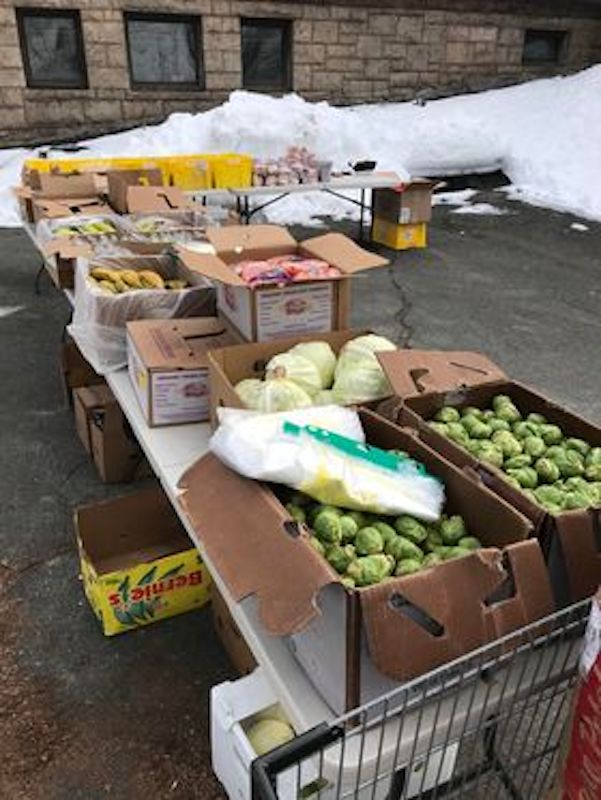
A lack of food has long been a problem for some Watertown residents, but the number of people worried about going hungry increased during the Pandemic and the numbers have only declined slightly in the past few years. On Feb. 12, Watertown News and Watertown Cable Access Television will host a live discussion with some of the people working on the problem of food insecurity in town.
The Watertown Food Pantry has seen the number of families served each week double from pre- to post-pandemic. More than 3,000 Watertown residents are enrolled in SNAP (formerly known as Food Stamps), close to 10 percent of the City’s population, and many more qualify but have not enrolled.
In Watertown, the Massachusetts Area Planning Council estimated that in 2020, 13.3 percent of households were food insecure. Per Project Bread, as of September 2023, 18.8 percent of Massachusetts households were food insecure.
Watertown has a variety of places to turn, from the two food pantries — the Watertown Food Pantry at 80 Mt. Auburn St. and the Catholic Collaborative Food Pantry, 770 Mt. Auburn St. — along with the Watertown Community Fridge, also at 80 Mt. Auburn St. Residents of the Watertown Housing Authority have been able to take advantage of a free grocery delivery program funded by a grant from the Watertown Community Foundation. For those who qualify, there is the SNAP program, which provides money for groceries and can even be used at the Watertown Farmers Market.
Hear more about these programs, and what else could be done to make sure that no one is going hungry in Watertown at the roundtable discussion on Monday, Feb. 12, at 6 p.m. at the Mosesian Center for the Arts, 321 Arsenal St., Watertown. The event will be moderated by Charlie Breitrose of Watertown News and journalist Maya Shwayder. The event will also be broadcast on WCA-TV.
Also during the event, a short preview of Watertown Cable’s series documenting the issue of food insecurity in town will be screened.
Panelists on the roundtable will include Watertown Community Foundation Executive Director Tia Tilson, Watertown Food Pantry Coordinator Kathy Cunningham, the City of Watertown’s Community Wellness Program Manager Stephanie Venizelos, Watertown Housing Authority Executive Director Michael Lara, and Watertown Social Services Resource Specialist Sophia Suarez-Friedman from the Wayside Multi-Service Center.
The event is free, but attendees are encouraged to bring a non-perishable food item or monetary donation for the Watertown Community Fridge or Food Bank.
Read the Stories in the Series
Part 1: Watertown’s Hidden Problem: Food Insecurity Among Us
Part 2: Hunger Hits Home: A Watertown Teenager’s Struggle to Feed Herself
Part 4: Through Pandemics & Collapsed Ceilings, the Watertown Food Pantry Stays Open
Part 5: Filling the Watertown’s Free Fridge is a Community Effort
Part 6: Food Insecurity in Watertown: Hunger is a Multi-Faceted Problem — It Won’t Magically Go Away
And let’s remember that the housing crisis means 30-50% Watertown renting and owning families are paying 1/3 to half their income on rent/mortgage. Less money for food. Affordable housing can help food security. Thank you for your spotlight on this and on the compassionate people who are stepping up.
Thank you so much for your insightful comment and bringing attention to the fact that if people are burdened by overwhelming housing costs, there is little money left to buy food. Unfortunately, people with low-incomes sometimes have to sacrifice one for the other and housing is usually what comes first, as with a loss of housing, everything else suffers. I will say though that the homeless community is well provided for when it comes to food, but options for shelter and housing are minimal. Once you’ve lost housing, it is incredibly difficult to regain stability and there is minimal help available and, as we know, affordable housing, in the present day, is scarce. “Affordable housing can help” with food insecurity and so much more.